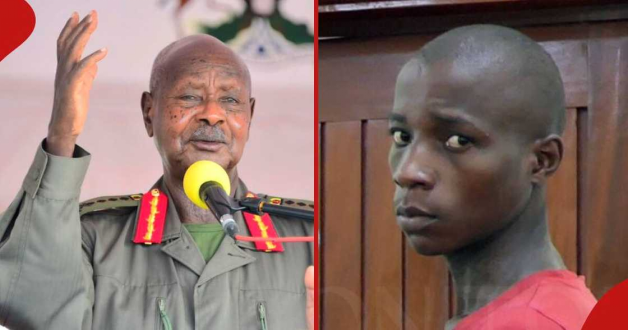
Implications For Freedom of Expression: Ugandan TikToker Edward Awebwa Sentenced to Six Years for Insulting President Museveni on Social Media
Fiona Nanna, ForeMedia News
3 minutes read. Updated 4:11PM GMT Tues, 16 July, 2024
A court in Uganda has handed down a six-year prison sentence to 24-year-old Edward Awebwa for posting a TikTok video insulting the president and his family.
In line with legal development underscoring Uganda’s tightening grip on digital freedom, Edward Awebwa, a 24-year-old TikTok user, has been handed a six-year prison term. His crime? Using social media to propagate hate speech and false allegations against President Yoweri Museveni and his family.
Awebwa, known for managing the TikTok handle “Save Media Uganda,” faced justice at the Entebbe Chief Magistrate Court, where Chief Magistrate Stellah-Maris Amabilisi pronounced the sentence. His arrest stemmed from a video post targeting President Museveni, the First Lady, and their son.
According to Kampala Metropolitan Deputy Police Spokesperson Luke Owoyesigyire, Awebwa’s offending videos circulated online between February and March 2024. This legal action signals Uganda’s concerted effort to curb online criticism of senior government figures and safeguard their public image.
Under the controversial Computer Misuse Act of 2022, Awebwa was charged with “willful and repeated use of electronic communication to disturb or attempt to disturb the peace, quiet, or privacy of any person without legitimate communication.” Conviction under this law can lead to fines, imprisonment for up to a year, or both.
This case forms part of a broader crackdown by Ugandan security forces on individuals using social media platforms to criticize government officials. Awebwa joins a growing list of content creators imprisoned under similar charges of spreading “malicious information” and “hate speech.”
Critics, including human rights activists and civil society groups, have vehemently opposed the Computer Misuse Act, arguing that it stifles free speech and violates constitutional rights. They have taken their objections to the Constitutional Court, seeking redress against what they perceive as oppressive legislation.
Internationally, concerns have been raised over Uganda’s increasingly restrictive environment for free expression. Organizations such as Human Rights Watch and Amnesty International have called on the Ugandan government to repeal or amend laws that curtail digital freedom and ensure citizens’ right to dissent without fear of reprisal.
For deeper insights into Uganda’s legal landscape and its implications for digital rights, explore our detailed coverage on Human Rights Watch and Amnesty International.
Related Articles:
- The State of Freedom of Expression in Uganda
- Analyzing the Impact of Uganda’s Computer Misuse Act

